I like to think of a Violin Practice Journal as less of a physical thing, and more as an approach to keeping a record of your practice.
However you choose to keep your journal - notebook, app, word document... or my favourite, old scraps of paper stored in a cardboard box! ...
... what's important is that you have some sort of records of your practice. What you did, in other words.
And, more importantly, why.
A practice journal is all about documenting what you've done in the past. But why would you want to do that?
Journalling shows you - in full, inescapable detail - exactly how you've spent your time.
Now, as they say... past performance doesn't necessarily indicate future performance.
But what it does do for you, the violinist, the journaler, is to show you clearly what you did, and why.
Once you know that, and have time to reflect on it, then you can plan ahead to what you're going to do in your next practice session... ... and why!
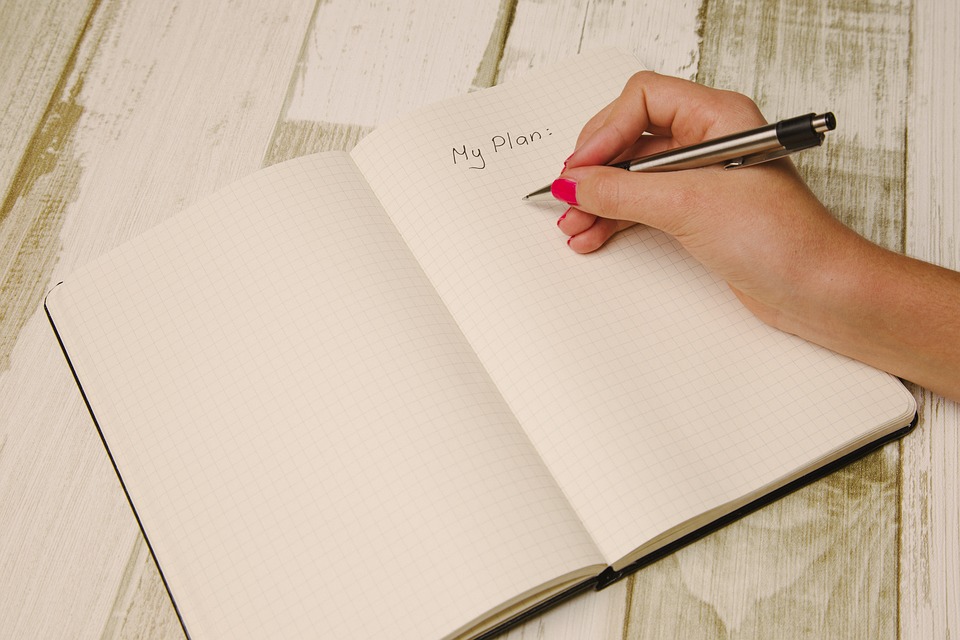
Keeping a practice journal can have a number of benefits.
Some are very practical, some are more emotional and motivational. But all of them lead you towards better, more efficient practice.
Here's an overview of some of the things you can expect to see when you begin to keep a practice journal...
Time is one of THE most precious - and finite - resources that we, as human beings, have.
As musicians, we need more time than most to hone our craft, and put in the practice hours that will make our playing as good as we want it to be.
So we must make sure we're using every second wisely!
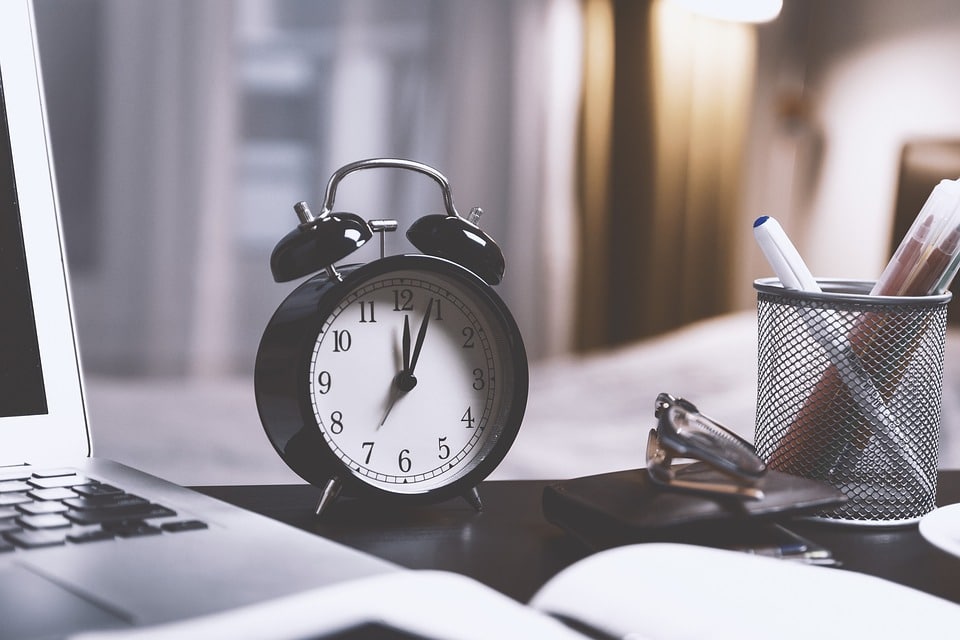
If your schedule leaves you with limited time for violin practice, you can keep your momentum going by restricting the number of minutes you spend on each task.
This way you'll get through more tasks, and cover more ground in your practice. Your development will be more balanced, because you're making progress in all areas, rather than just one or two.
Over time, as you review your journal, you'll start to notice improvements across the whole of your playing. This will create a virtuous circle, as you'll be motivated to practise even more!
"What did I ACTUALLY do?"
If you want to be sure about how you're using your time, journaling is an excellent tool. From your notes, you can see exactly where your time has gone!
If you've used your practice time effectively, you'll see it right there on the page! And if you haven't, you'll see it there too!
Of course we all have days where practice just isn't flowing. That's fine. Note it down in the practice journal, go and have a biscuit, sit by a river and mediate, try again tomorrow.
But at least we know how we've spent our time, and we know that we were clear and deliberate about our decisions.
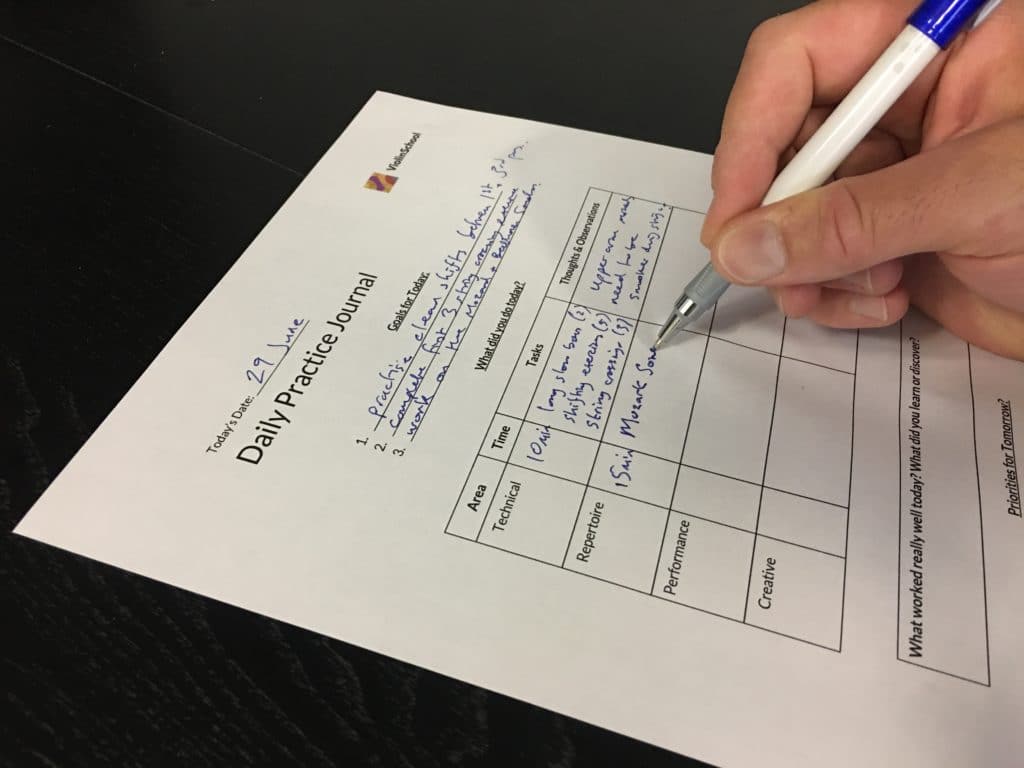
Keeping a journal each time you practise doesn't need to take long - a minute or two is more than enough. But the simple act of journalling every time you practise can work wonders for building your regular habits.
A written record of your daily practice creates an extra incentive to keep taking daily action. Comedian Jerry Seinfeld famously suggested to record an unbroken chain of daily work on a big wall calendar. It can be extremely satisfying to see every day's practice checked off on the calendar!
The opposite is also true; once you get into the habit of keeping a daily record of your practice, it will feel wrong to 'break the chain' by missing a day. You'll be excited and motivated by your progress, and you'll want to keep it going for as long as possible.
These little daily habits are the foundation of achieving your long term goals. You won't necessarily see progress every single day, but the cumulative effect of daily practice over a long period can be extraordinary.
Use your journal to keep yourself accountable on a daily basis, and get yourself into a really good 'daily habit' of violin practice!

After a detailed piece of practice on something, our subconscious mind gets to work on it - especially whilst we're sleeping.
That's why sometimes you can wake up in the morning, and suddenly have a magical clarity about an issue you were struggling with the previous day. Or, you get to the practice room and find that you can do something that you couldn't do the day before!
However, if you haven't taken clear notes and already set out your priorities for the next day, you might forget the work you did yesterday... you might not even remember to try out the tricky passage you were working on!
But if you DO keep notes, then you can go straight back to yesterday's challenges, and apply whatever amazing solutions your brain has come up with during the night!

There's an old saying, "what gets measured gets done". It's worth tracking how much time you spend on each task, so that you know you've covered everything adequately.
When you can see exactly which practice tasks helped you to make tangible, measurable improvements, it gives you a much clearer idea about what's working and what isn't.
This makes it easier to decide what to spend your time on next!
When you look at your recent journal entries before planning the next day's tasks, your record of what you did (and for how long), will give you a sense of what you need to do to achieve the next short term goals.
Make a note of what worked, and how long you had to practise it before seeing results. From there, you can start to predict efficient ways of overcoming the next challenges on your list, and building them into your practice plan!
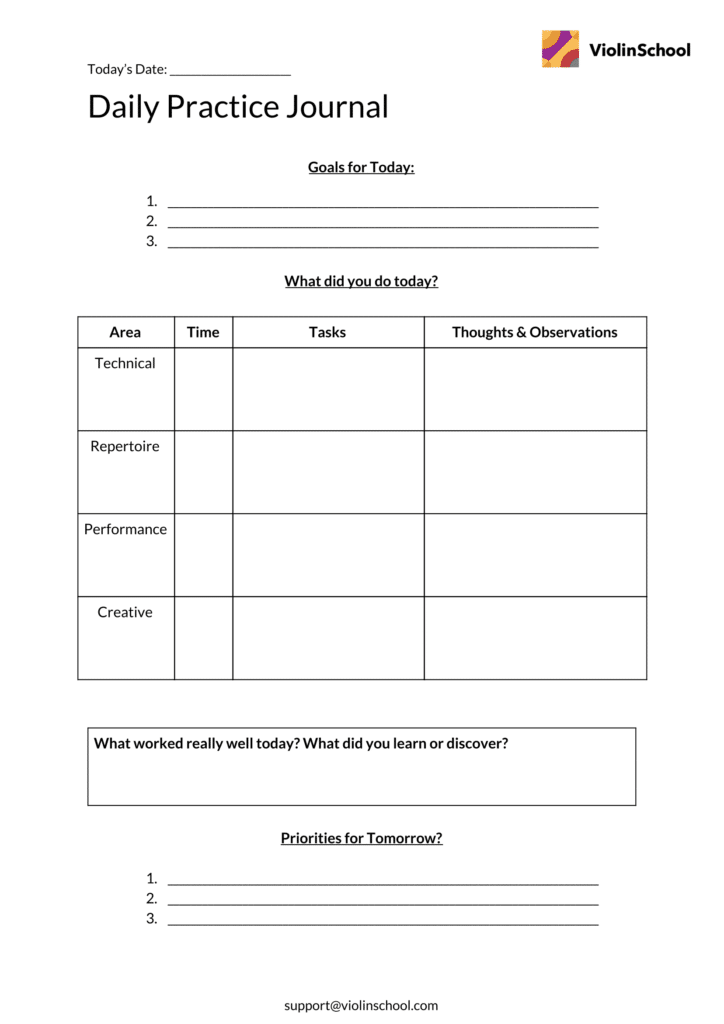
ViolinSchool members can download the Practice Journal templates in the ViolinSchool Library
Too many people practise in an 'ad hoc' way, without a clear sense of what they're trying to achieve.
It helps if you have a clear goal or objective that you're working towards, such as a concert or exam, but what if you don't?
This is where having a clear framework or structure for your practice can give you immense clarity about how and why you are practising.
Even if you don't have a short term goal to work towards, you can still plan your practice time wisely.
At ViolinSchool, in the absence of any alternative plan, we like to break up practice time into four key areas:
TECHNICAL, MUSICAL (Repertoire), PERFORMANCE and CREATIVE.
Here's a useful 'practice menu' that explains a bit more about each of these key areas. We find this is a helpful framework of thinking about the different sections of your violin practice, so that you don't overlook anything when planning your daily practice!
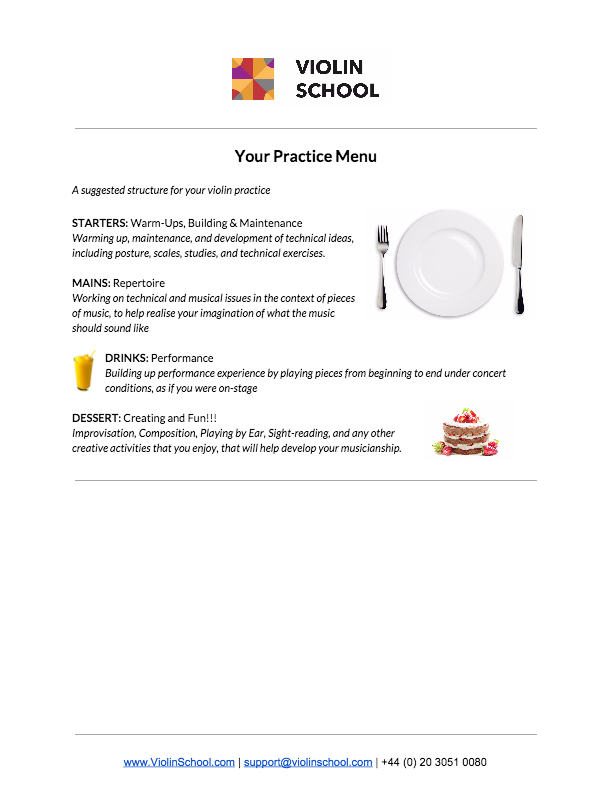
ViolinSchool members can download all of our Practice Tools in the ViolinSchool Library
Journalling can help you understand how balanced your practice is. For example, are you spending all your time just playing through pieces? Or spending so much time on technical work that you're not doing any creative, fun stuff?
Of course, people need a different balance to their practice at different stages of learning, so the structure of everyone's violin practice will be different.
But by keeping a note of which TYPES of practice task you do, and for how long, you can keep assessing whether or not your violin practice is balanced, and whether you're focused on the most important tasks... the ones that are most important for YOU, right NOW!
Another really valuable insight you'll gain from keeping a regular practice journal is that you'll start to notice patterns in your practice. This can be positive OR negative!
Ask yourself: What do you see popping up regularly in your journals? Are you always practising the same exercises? Are you seeing the same challenges coming up repeatedly? Do these patterns suggest a technical problem, or some other issue where you need to seek help from a teacher?
Of course, some repetition is good. If you're starting most of your practice sessions with long slow bows or other similar sound production exercises, that's probably a good thing.
And scale routines, for example, are useful for maintaining the fluency of your left hand technique, so it's good to see a regular pattern of scale practice in your journal.
However, if you find that you're often playing the same study or technical exercise over and over again for weeks at a time, then you might be at risk of your practice habits becoming stale (and boring!).
Unnecessary and repetitive tasks are a warning sign... once the creativity disappears from your violin practice, the fun will often disappear too, and practising can become a chore. Don't let that happen!!
Use your judgment - ask yourself if recurring patterns in your practice journal show good habits, or whether you need to mix things up a bit and look for new ideas.
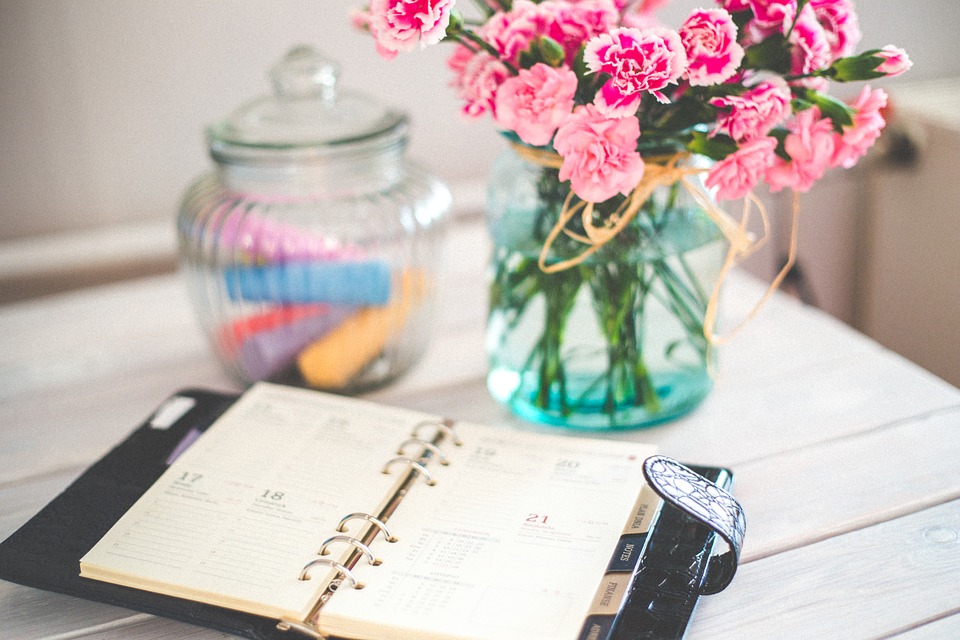
Learning the violin well takes a long time, so your goals and priorities are likely to change over the years.
What you're aiming for one month might be totally different a year or two later.
If your approach to violin practice doesn't evolve to support your changing goals and priorities, then you'll hit problems.
And your practice journal provides a great way to monitor - and prevent! - this.
By regularly reassessing your short term goals, you can assess whether you're moving in the right direction for achieving your long term goals.
That's why we encourage you to make a note of everything you've learnt or discovered in your practice journal, as well as using short term goals to clearly map out what you want to achieve in your practice... BEFORE you do it!
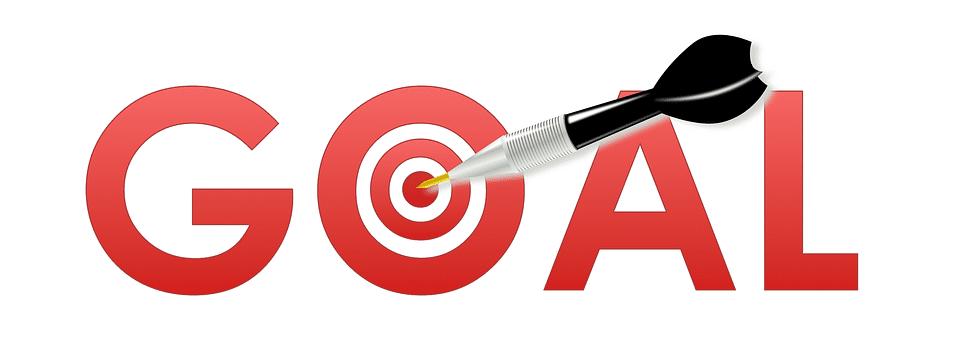
Don't get too lost in the detail though. If you're so focused on your short term practice that you never reflect on your long term plans, it's easy to lose focus and momentum.
Every few months, take some time to review your practice journal AWAY from the violin.
Take it to a quiet place where you're not going to be disturbed, and give yourself some time to read and think.
As you reflect on what you've done over the past months, you'll get a feeling for how you're progressing according to your 'big picture' plans.
Your learning and your new discoveries might even send you in a different direction! Perhaps you'll discover a new style of music that you love ... Or suddenly you'll become interested in a different type of ensemble music!
Embrace these changes, and update your approach to practice so that it's congruent with what you want to achieve long term.
Being able to 'zoom' in and out of your short, medium and long term activities is wonderfully helpful for giving you clarity and confidence in how you're spending your time.
Looking back through your journal allows you to see how your day to day practice has fitted into the big picture of what you want to achieve.
Reflect on what worked well and what didn't work well. Use your observations to model what you want to do - or not do - in your future violin practice!

Finally, never underestimate the power of motivation.
When you see, from your practice journal, that you're making tangible, clear progress, then you're far more likely to feel enthusiastic and motivated about the journey ahead!
The simple act of looking back through your practice journal and seeing what you've achieved, can be extremely empowering. A small breakthrough or new discovery can fuel your excitement, and keep you looking forward excitedly to your violin practice time!

Unless your home is patrolled by rambunctious pets or wild children, a great way to reduce the 'barrier' to practice is to leave your instrument out of its case, so that it's easily accessible ...
... You're far more likely to pick it up and start to play if you don't have to go through the hassle of getting it out of the case!
Do the same with your practice journal ... leave it near your instrument so that you always remember to fill it in. But also, leave it somewhere accessible during the day so that you can refer to it and reflect on your current work whenever you have a spare moment!
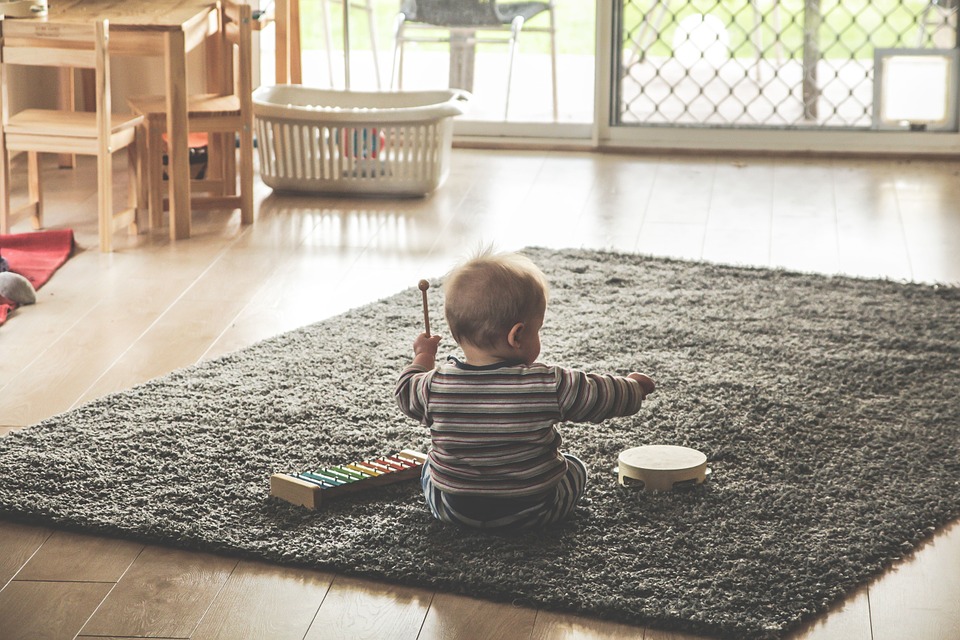
Once you've got into the habit of journaling regularly, you can then think about how to improve the process.
If you're able to keep a digital journal, then all sorts of opportunities open up for tagging, categorising, and sorting your notes. Software such as Evernote, Dropbox, or even just a folder of Word documents can be a great way to sort your ideas in an accessible, easily-navigable way.
For some people, this is way too much hassle. But for others, the convenience of a digital device - and the possibility for organising your notes in a creative way - can really help to make learning and practice more efficient.
Just... don't forget to back it up!

If daily journaling doesn't work for you, or you're not yet convinced that it's a necessary thing to do, that's fine... but you can still keep a basic record of what you've done!
Instead of a daily, time-based journal, some people like to keep a page of notes for each piece of music they work on.
You could keep all your notes for violin sonatas in one box, and for violin concertos in another ...
... or maybe you have a folder dedicated to studies and technical exercises...
... or even just use a scale tracker to track which scales you've practised, and how often!
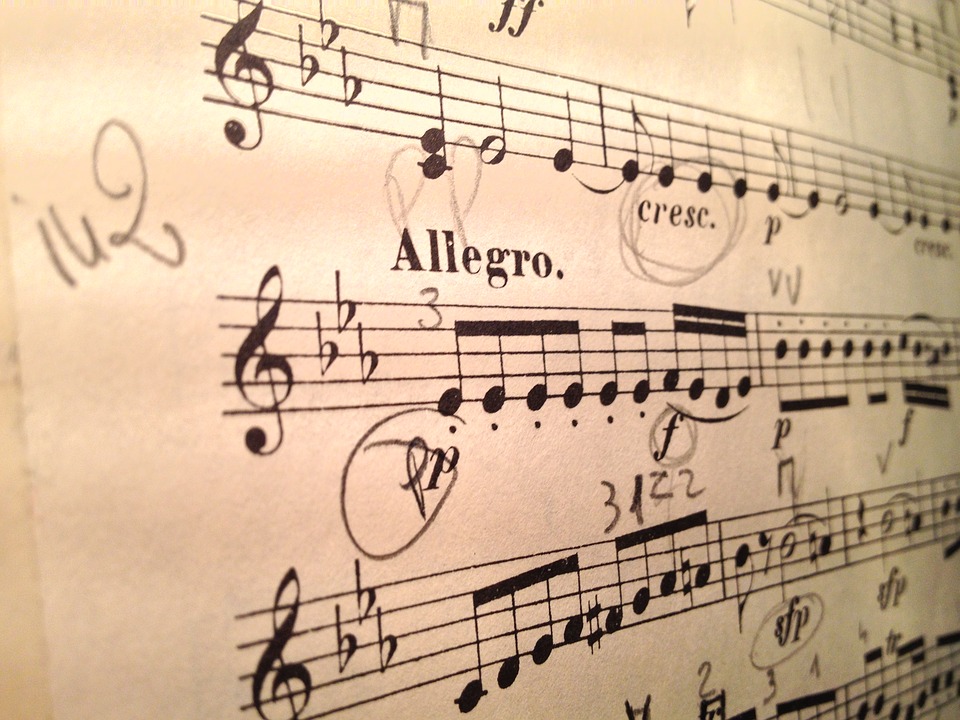
Journaling and note keeping can take MANY forms, and it's very important to remember that what works for one person won't necessarily work for another.
Personally, I don't like spending much time on detailed note-keeping about what I've done. I prefer scribbling a quick note to myself, committing it to memory, and dumping it in one of my many cardboard boxes!
Knowing it's there (and knowing roughly which box it's in) is all the peace of mind I need, and if I want to look back on what I've done, I'll just sift through the boxes and explore my past practice sessions.
But plenty of people would hate the way I keep my journal... I know many of our learners carefully type their notes, or keep records of each practice session in a beautiful hand-written notebook!
Ultimately, so long as you're keeping a good record, it doesn't really matter HOW you do it. Your journal just has to be right for you.
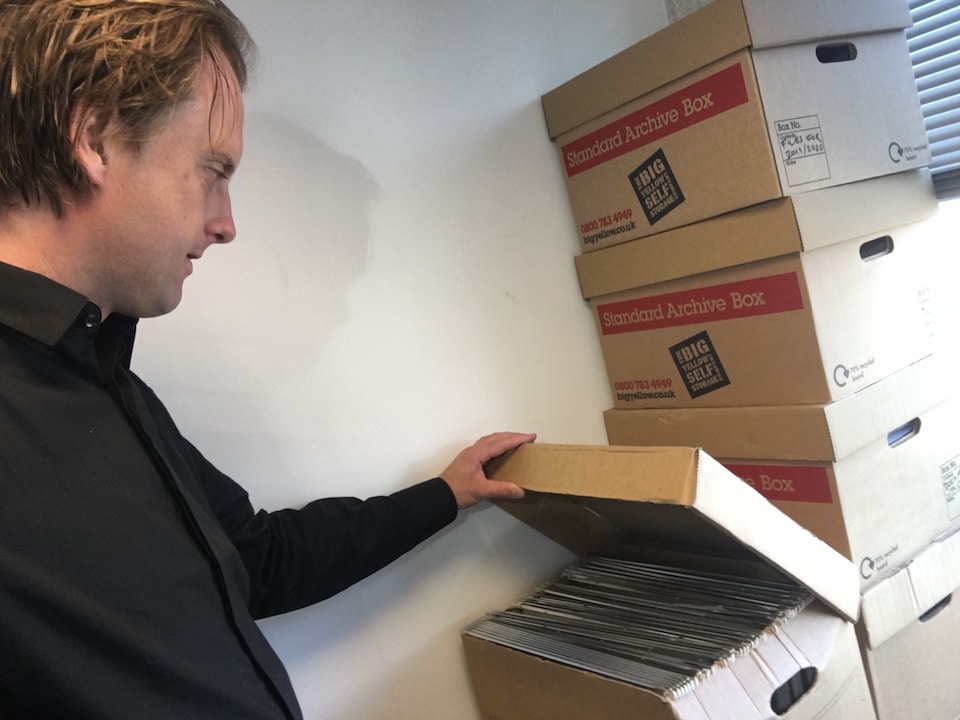
Anne Timberlake: Transform Your Practice: Keeping a Practice Journal
Rob Knopper - What My Practice Journal Looks Like
Real School of Music: How to Use a Practice Journal
"what gets measured gets done" - Unknown
